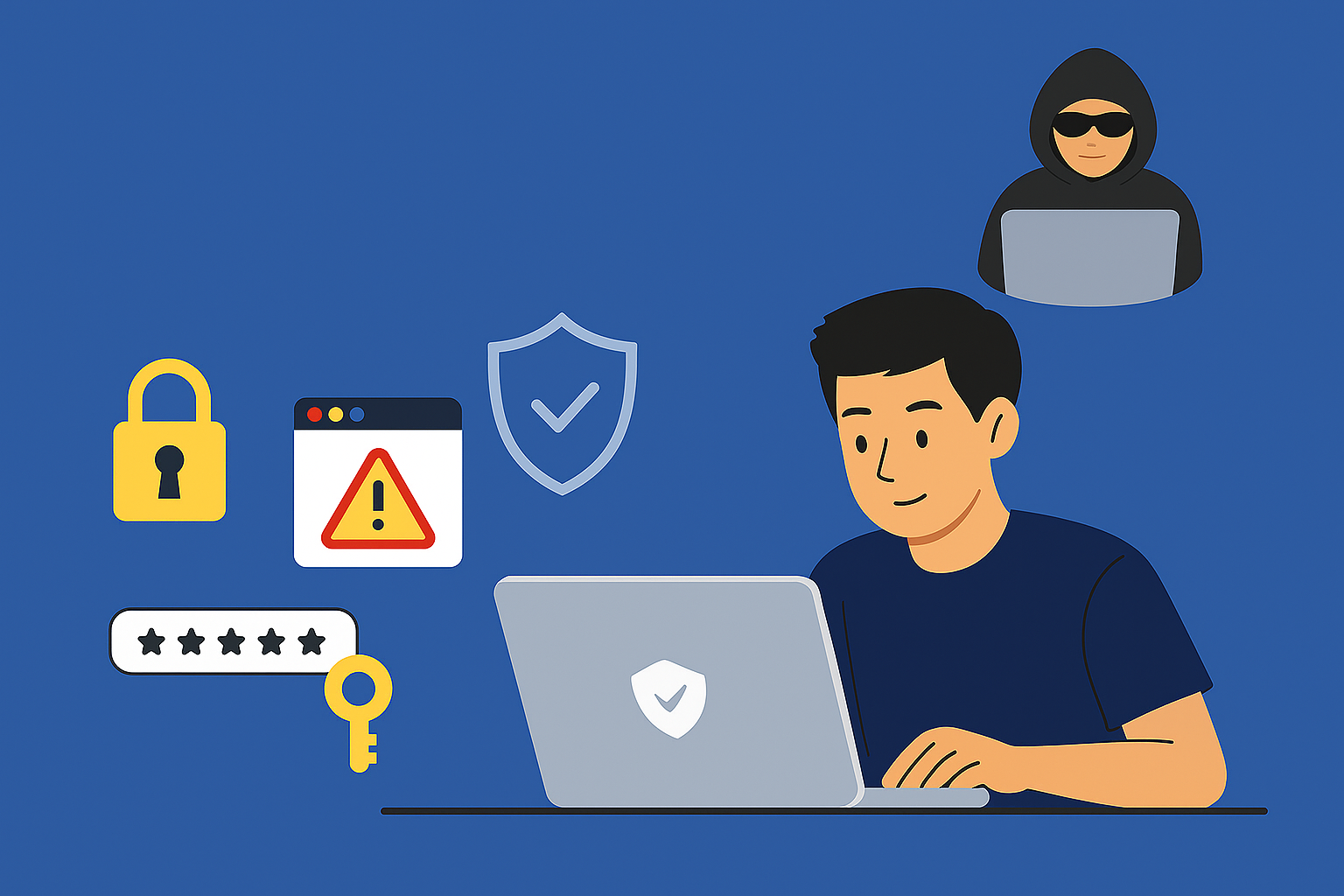Why Every Student Needs to Learn Cybersecurity Before It’s Too Late

Today, almost everything we do is connected to the internet. Whether you’re posting on social media, submitting school assignments, or even playing games, you are putting your personal information online. With all that convenience comes a big risk. Cybersecurity isn’t just some complicated tech word — it’s about protecting yourself, your friends, and your future online. And it’s something every student needs to start learning now.
A lot of us think about hackers as movie villains or major companies getting attacked, but the truth is that students are actually huge targets. Hackers know that teenagers have valuable information too — school records, passwords, and even financial details linked to apps or online shopping accounts. The earlier you learn how to protect yourself, the safer you will be not just today but for the rest of your life.
How Hackers Actually Target Students
Hackers don’t usually break into computers like they do in movies. They often trick people into giving away their own information. One of the most common ways they do this is through phishing emails. You might get an email that looks like it’s from your school, your favorite store, or even a scholarship opportunity. It might say you won something or need to “verify” your password. But when you click the link, you end up giving away your personal information to a scammer.
Another method hackers use is guessing weak passwords. If your password is something like “123456” or “password123,” it’s like leaving your house keys on the front porch. They also target public Wi-Fi networks — like at coffee shops or libraries — where it’s much easier for them to spy on your internet traffic if you’re not careful.
Even quizzes and games on social media can be traps. You know those “What’s Your Celebrity Twin?” quizzes? Sometimes they’re just sneaky ways to collect your personal information. Hackers know how to make things look fun and harmless to get you to lower your guard.
Basic Cybersecurity Moves Every Student Should Know
The good news is you don’t have to be a tech genius to protect yourself. A few smart habits can make a huge difference. Let’s break down some moves every student should start using.
Use Strong Passwords: A strong password isn’t just a long word. It’s a mix of uppercase and lowercase letters, numbers, and symbols. For example, instead of “soccer123,” a better password would be “S0ccer!23#Gk.” You can even use passphrases like “PurpleTacoRain!92.” The longer and weirder it is, the better.
Turn On Two-Factor Authentication (2FA): 2FA means you need two things to log in — usually your password plus a code sent to your phone. Even if someone guesses your password, they can’t get in without your phone. Turn it on for all important accounts like email, social media, and banking apps.
Learn to Spot Phishing Emails: If you get a weird email that pressures you to click a link quickly, stop. Check the sender’s email address carefully. If something feels off, it probably is. Never log in to an account by clicking on a link inside an email. Go directly to the website yourself.
Protect Your Social Media: Hackers love social media because it’s full of clues about your life — your birthday, school name, pet’s name (hello, password hints!). Make your profiles private and think twice before sharing too much. What seems harmless can sometimes be used to answer security questions and break into accounts.
Be Careful on Public Wi-Fi: Public Wi-Fi is not always safe. If you have to use it, avoid logging into important accounts like banking or school portals. Or use a VPN (Virtual Private Network) to protect your connection — more on that in a second.
Beginner Cybersecurity Tools You Can Start Using
Password Managers: Instead of trying to remember a bunch of crazy passwords, use a password manager like Bitwarden, 1Password, or even the built-in ones from Google or Apple. They create and store strong passwords so you don’t have to remember them all.
VPNs: A Virtual Private Network (VPN) is like a secret tunnel for your internet connection. It hides what you’re doing from hackers on public Wi-Fi. Good free options exist, but if you can get a trusted paid VPN, it’s even better. Some great VPNs for students are ProtonVPN, NordVPN, and ExpressVPN.
Antivirus Software: Even if you have a newer device, running antivirus software adds an extra layer of protection. Programs like Windows Defender (free with Windows) or Malwarebytes can catch suspicious stuff before it causes problems.
Starting to use these tools now makes you way less likely to run into problems later. It’s like putting on a seatbelt — you hope nothing happens, but you’re way better off if it does.
Conclusion: Stay Smart, Stay Safe
Cybersecurity might sound overwhelming at first, but it’s really about using simple habits that add up. Strong passwords, two-factor authentication, recognizing sketchy emails, and protecting your accounts and information online are skills that will keep you safe now and way into the future.
The internet is an awesome place to learn, create, and connect — as long as you stay one step ahead. Learning cybersecurity basics is not just for computer nerds anymore. It’s a survival skill for everyone, especially students who are building their futures online.
Stay curious. Stay cautious. And most of all, stay in control of your digital life. You’ve got this.